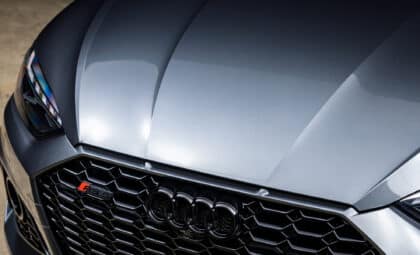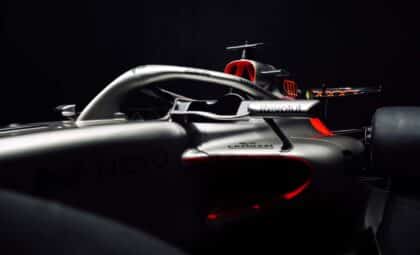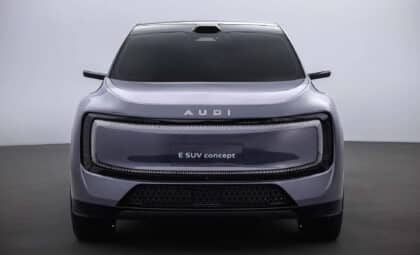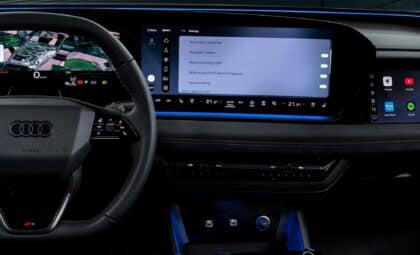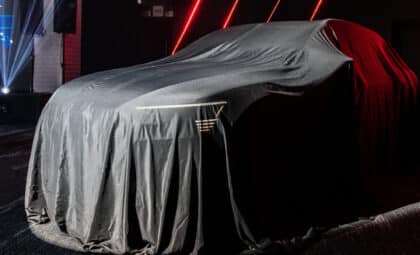This new engine, the EA897evo4, combines a mild-hybrid system with an electrically powered compressor to improve low-rpm torque and enhance turbo response, setting a new standard for diesel performance. Set to debut in the A6 and Q5, this engine showcases Audi’s commitment to refining diesel technology at a time when diesel sales in Europe are on the decline.
Despite the overall decline in diesel engine sales, which now account for just 8% of the European market, Audi continues to invest in the technology. The company, which has been selling diesel-powered vehicles since 1989, is determined to prove that diesel engines can still have a place in the future, particularly with advancements like the new V6 TDI. The EA897evo4 aims to address one of diesel’s most persistent issues: turbo lag.
A New Approach to Turbo Lag
The centerpiece of Audi’s new V6 diesel is its integration of an electrically powered compressor. Unlike traditional turbochargers, which rely on exhaust gases to spin, this compressor is powered by electricity and is positioned behind the turbocharger and intercooler.
When the turbo is not providing enough boost, the electrically driven compressor kicks in, further compressing the intake air before it enters the combustion chamber. Audi claims this system delivers virtually zero turbo lag, ensuring a more immediate and responsive driving experience. According to Audi, the new V6 diesel performs almost like an electric vehicle, offering fast and seamless power delivery, reports Motor1.
This innovation significantly improves the engine’s responsiveness. With 295 horsepower and 428 lb-ft of torque available from just 1,500 rpm, the new engine delivers a sharp increase in performance. The turbocharger’s maximum boost pressure is reached nearly a full second quicker than its predecessor, and the compressor spins at up to 90,000 rpm in just 250 milliseconds. Audi reports that this technology results in faster acceleration, with the A6 sedan reaching 0-62 mph in 5.2 seconds and the Q5 SUV even quicker at 5 seconds flat.
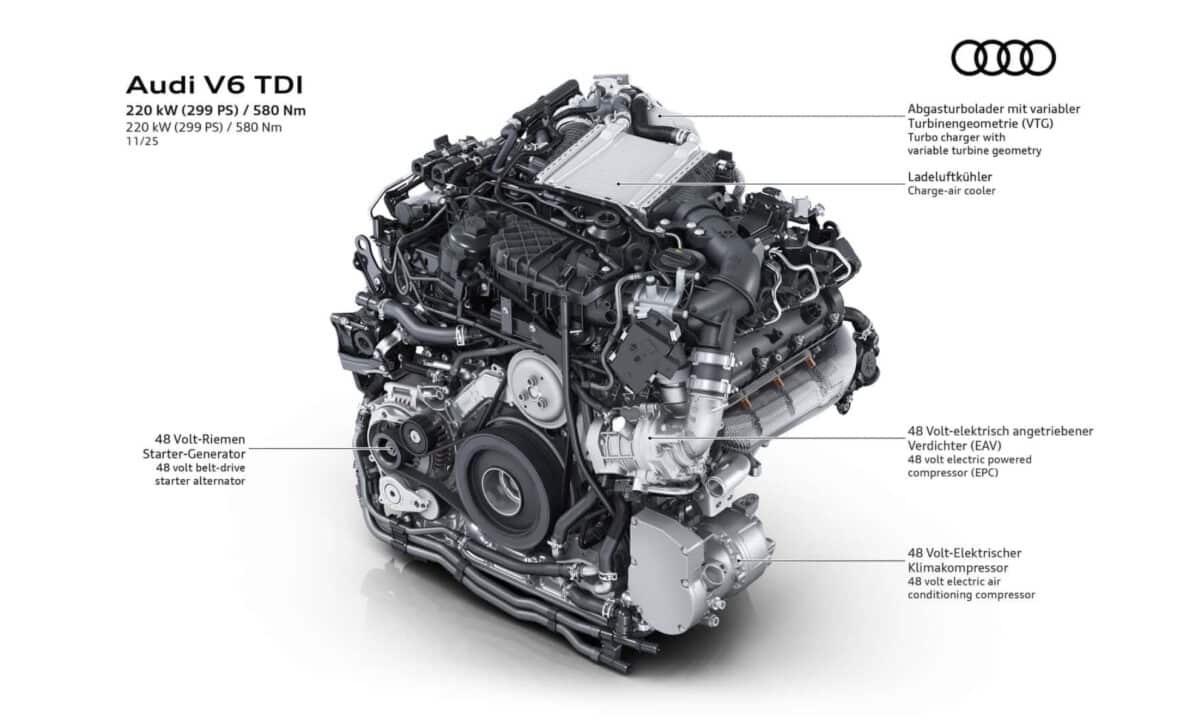
Fuel Efficiency and Environmental Benefits
While diesel engines are often criticized for their environmental impact, Audi’s new V6 diesel is designed with sustainability in mind. The engine can run on hydrotreated vegetable oil (HVO), a renewable fuel derived from used cooking oils and agricultural by-products.
According to Audi, HVO reduces CO2 emissions by up to 95% compared to conventional diesel, offering a more eco-friendly alternative for drivers who require the performance of a diesel engine. Audi has already started using HVO in its production vehicles, filling them at their German plants in Neckarsulm and Ingolstadt.
This focus on cleaner fuel aligns with the broader automotive industry’s shift toward reducing emissions, while still catering to customers who depend on diesel engines for their range and performance. Audi’s commitment to this technology highlights the potential for diesel to remain relevant in the future, particularly when paired with sustainable fuel options like HVO.
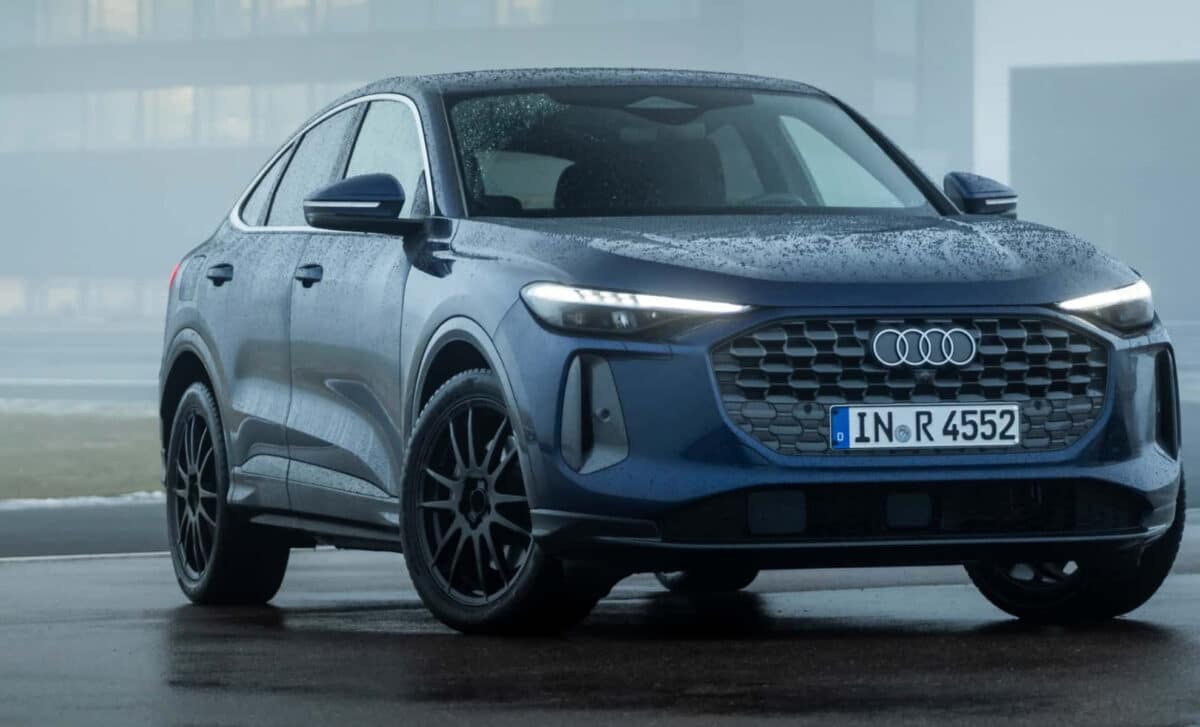
A Continued Evolution of Diesel Power
Although the EA897evo4 represents a significant step forward for Audi’s diesel engines, it is not a completely new design. The engine is the latest iteration of the EA897 family, which has been in use since 2010.
The EA897evo4 builds on this proven technology, refining aspects like durability and fuel efficiency. Audi claims the new engine is its cleanest yet, and while it retains the core features of its predecessor, it benefits from significant improvements, particularly in terms of performance and environmental impact.
This new engine will likely appear in upcoming models like the Q7 and Q9, although the A7 may not receive a next-generation V6 diesel due to uncertainty about the model’s future. Even as diesel’s market share shrinks, Audi is positioning the EA897evo4 as a powerful and efficient solution for customers who still value the benefits of diesel performance, especially in larger vehicles.


